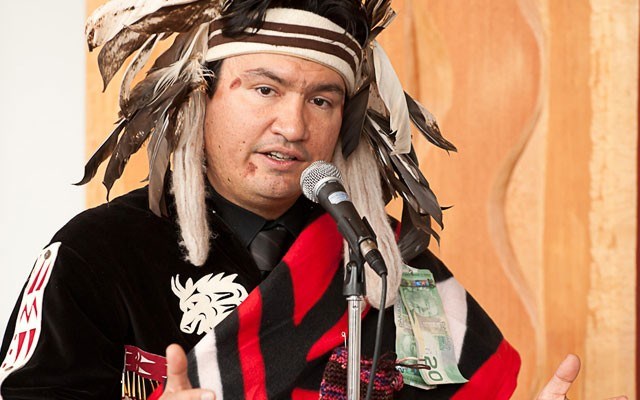When Ashley Callingbull, a member of Alberta's Enoch Cree Nation, became the first Canadian and First Nations woman to be named Mrs. Universe on August 29, she wasted no time in getting political.
"I believe that this government was created to work against us and not for us," Callingbull told Rosemary Barton on CBC's Power & Politics last week.
"There's just so many problems with it for First Nations people. We're always put on the back burner."
With a federal election just weeks away, Callingbull's message is timely.
"I think it's tremendous to see role models such as her that will inspire so many other young First Nations people across this country, and indigenous people globally, to see that we're truly on the cusp of a turning of a page where change is possible," said Chief Ian Campbell of the Squamish Nation (SN).
"I'm not very impressed, personally, with this current government, and I feel that Canadians deserve better. We're all in this together.
"What we need is a leader with true vision, who is able to articulate that vision to inspire people that there is a win-win here and that it does not necessarily have to be adversarial. This government chooses the path of most resistance, where they're forcing First Nations to the courts and using legal remedies, and that to me is not a sustainable relationship."
For Chief Dean Nelson of the Lil'wat Nation, having someone at the federal government just listen to Lil'wat concerns would be a great place to start — though Mount Currie joined the Sea to Sky riding in 2012, Nelson said he has never met Conservative MP John Weston.
"We're just kind of focused on their platforms so far," Nelson said, of which party he likes in the election.
"The Liberals, they were really promoting equal education opportunities for First Nations, and I think that's really important."
Nelson — a former teacher himself — said teaching First Nations history and the treatment of indigenous people needs to be prominent, and that the continuing effects of residential school trauma needs to be better understood.
Nelson is also pleased to see that the NDP has expressed concern for missing and murdered indigenous women, something Campbell said was encouraging to see as well.
"I certainly appreciate that someone is listening, because as a young aboriginal man, to see our women being victimized and hearing heads of state such as Minister (Bernard) Valcourt stating that that's a First Nations man issue... it completely misses the mark of colonization, intergenerational impacts of residential school and legislative oppression," Campbell said.
When it comes to endorsing one party over another, Campbell said it's a tough choice.
"Previous Liberal governments have attempted to affect positive change through the Kelowna Accord and things like that... I'm now looking at the NDP and particularly listening intently on the issues of procedural fairness around natural resource management, the NEB processes, and how they want to reshape that, so that's of interest to me," Campbell said.
"There's a little bit from each of them that I'm trying to tune in on and look at what does that mean not only to SN but to the wellbeing of this country as we improve relations."




